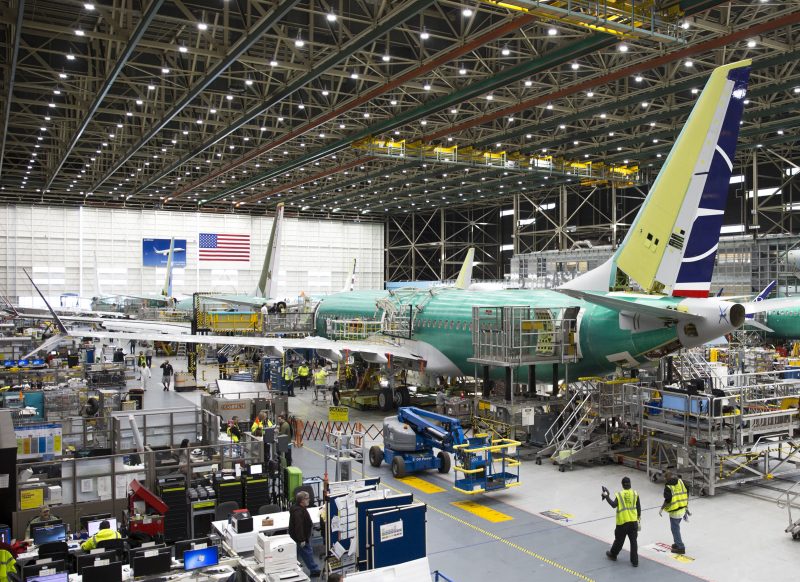Boeing CEO: 737 MAX compensation could include cash, services
Boeing’s CEO said compensation to airline customers inconvenienced by the 737 MAX could come in services or cash, depending on preference (Jason Redmond)
New York (AFP) – Boeing will tailor its compensation to airlines for the 737 MAX grounding around customer preference, and they could be paid back in services instead of cash, Chief Executive Dennis Muilenburg said Wednesday.
After two deadly crashes grounded the top-selling plane, Muilenburg acknowledged that the MAX crisis had shaken public confidence in the company and inconvenienced key customers, but the company is unlikely to take a big financial hit.
“We know we’ve impacted the summer schedules for many of them, and it’s difficult, it’s painful,” he said, speaking at a New York investor conference.
“I don’t see this as an additional material event for us, but it’s something that’s going to require individual attention customer by customer.”
Compensation could include tweaking plane delivery schedules, or offering additional training or services, as well as cash in some cases, he said.
Muilenburg, who was set to appear in his first broadcast interview on the crisis later Wednesday on CBS, called the crisis a “defining moment” after crashes of a Lion Air flight in October and Ethiopian Airlines in March claimed 346 lives.
Muilenburg, in excerpts of the interview released by CBS, repeated his apology over lives lost and pledged to be “absolutely resolute in what we’re going to do on safety going forward.”
The efforts to return the plane to the skies has taken longer than expected, so the timeframe for resuming flights on the troubled planes appears to be slipping further.
Alexandre de Juniac, head of the International Air Transport Association, said Wednesday the plane will remain grounded “at least 10 to 12 weeks” while regulators review Boeing’s proposed fix to a software problem that has been linked to both crashes.
– Regulatory approvals lag –
A note from CFRA Research characterized the timeframe for the 737 MAX resumption as “worse” than expected, but said Boeing was still well positioned once it exits the crisis.
“Our thesis on Boeing is based on long term commercial aerospace demand, a strong order book and the likelihood that Boeing will not lose significant orders as long as the plane resumes service safely,” CFRA said.
“We expect continued volatility in the shares until the issues hanging over Boeing move closer to being resolved,” CFRA added.
Muilenburg described last week’s meeting of international regulators as a “key” event in returning the plane to service, but acknowledged that it may take more time before global regulators are ready to approve the plane’s return.
He said the company continued to cooperate with US Federal Aviation Administration information requests.
“Our hope is that we’ll have a broad international alignment with the FAA,” he said at the conference.
“But there may be some international authorities that will operate on a different schedule. So we’ll have to tailor our plans, depending on the regulatory approval to get the airplane back up and flying.”
The FAA will be the first regulator to clear the plane for service, but aviation analysts say the agency wants at least some other countries to approve the plane soon after.
Muilenburg said Boeing was prepared to be flexible as more customers get the green light.
Boeing has cut it production schedule of the 737 MAX and halted new deliveries, necessitating additional storage capacity in Washington and Texas, he said.
Disclaimer: Validity of the above story is for 7 Days from original date of publishing. Source: AFP.


